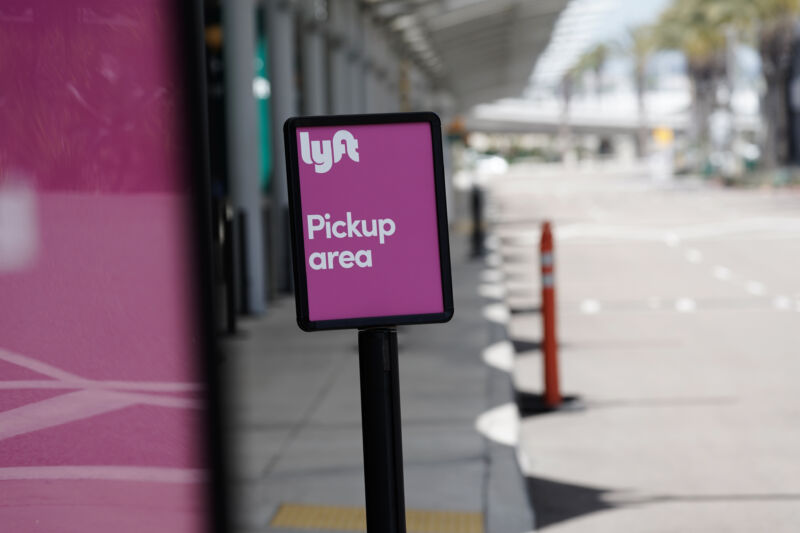
A California judge has granted Uber and Lyft an emergency reprieve from an order requiring them to treat their drivers as employees. The companies were facing a Thursday deadline to comply with the order. Earlier today, Lyft announced that it would be forced to shut down in the state at midnight tonight.
Lyft said it was being forced to shut down its California operations by a 2019 California law, AB 5, that forces ride-hailing companies to treat their drivers as employees rather than independent contractors. Uber had warned that it was likely to do the same if the courts didn’t delay enforcement of the law.
“This is not something we wanted to do, as we know millions of Californians depend on Lyft for daily, essential trips,” Lyft wrote. However, the company said, the new law would “necessitate an overhaul of the entire business model—it’s not a switch that can be flipped overnight.”
The judge’s emergency stay means that Lyft and Uber will be able to keep operating under their current model while they continue litigating whether the new law applies to them.
Uber says employee status will be bad for drivers
Lyft and Uber have traditionally treated their drivers as independent contractors, which means their drivers haven’t enjoyed benefits like a minimum wage, compensation for expenses, unemployment insurance, and overtime pay.
The current model is good for Uber and Lyft, and the companies argue that many drivers also benefit from the freedom it provides. Uber and Lyft drivers can log in to the app whenever and wherever they want, work for as long as they want, and then log off. They can also work for multiple companies simultaneously.
This has obvious benefits over most conventional jobs, in which workers are usually expected to commit in advance to working a particular schedule. Many Uber and Lyft drivers cite this flexibility as a major reason they choose this line of work.
Critics point out that nothing in employment law requires employers to set fixed schedules for their employees. That’s technically true, but Uber has argued that making drivers employees will erode the autonomy drivers enjoy today.
in a recent blog post, Uber economist Alison Stein writes:
There is no major company in the state of California or, indeed, in the entire country, where hourly employees can work like drivers currently do with Uber,” “Starbucks offers one of the most flexible part-time jobs around, but baristas can’t just walk in unannounced, decide they will only make lattes while refusing all orders for cappuccinos, leave during the morning rush to go pick up their kid from school (without permission from their boss), and return to work at a Peet’s Coffee…
Imagine a restaurant that offered their employees the same freedoms that drivers currently have with Uber,” she added. “On any given night they might have a single waiter trying to serve 100 customers or 100 waiters all serving one customer. In the middle of preparing a dish, the chef could leave to go cook for the food truck across the street. And anytime their employees decided to be on-shift, they would have to be paid, whether they had any work to do or the restaurant was closed.
At a minimum, Lyft and Uber say that the higher costs of running the service will force them to raise fares and cut service areas. Some customers will get priced out, so there will be less work to go around.
Ultimately, this is a question that will be decided by California voters this November. Uber and Lyft have sponsored a voter initiative that would grant ride-hail drivers some but not all of the rights of employees while maintaining most of the flexibility of independent contracting.
https://arstechnica.com/?p=1700287

